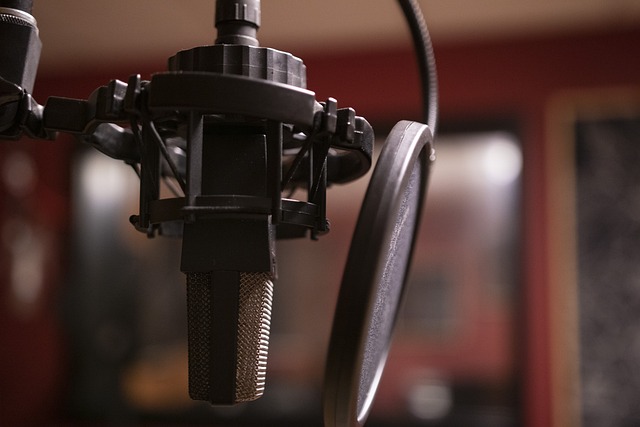
Podcast Tips
Are you thinking about starting your own podcast? Do you feel like you need some helpful tips for beginners in podcasting? Well, you have come to the perfect spot, my dear. Creating content through podcasting is undeniably one of the top and most pleasurable methods.
If you are considering launching your show, we want to motivate you to go ahead! Now is the perfect moment to start a podcast, as it is an excellent opportunity to build a lifestyle and business that brings you joy and satisfaction. And let’s be honest, who wouldn’t want that?
The sudden popularity of podcasts is not unexpected, given the current functioning of the world. This format has gained significant popularity due to its numerous advantages, with the ability to multitask being particularly valuable. Listeners can conveniently listen to podcasts while engaging in everyday activities such as commuting, cooking, washing, or any other mundane task.
The data indicates that slightly over half of the podcasts played daily are by individuals who are at home not doing anything. Roughly 15.6 percent of listeners tune in to podcasts while they are on the road or traveling, while 17.7 percent listen while engaged in household chores. The remaining portion typically listens to podcasts during their exercise routines.
The Best Podcast Tips
As a podcast creator, how can you capture the essence of industry leaders and provide listeners with a sense of belonging and understanding in your high-quality audio production?
Starting a podcast is a task that is relatively simple for almost everyone. The key lies in being able to do it effectively. Even though it may seem uncomplicated, it is essential to adequately prepare yourself in order to establish a high-quality podcast setup and proceed with the show, regardless of any initial nerves that may arise.
In celebration of that, today we will be offering our most cherished podcast tips catered specifically to beginners! These are all valuable pieces of guidance that will assist you on your podcasting endeavor.
1. Plan It Out
Having a well-planned strategy on how to navigate a podcast can assist in resolving any difficulties encountered during the recording process, thus eliminating any obstacles that may cause inconvenience.
When creating a plan, it is important to consider what topics you want to discuss, how many episodes you intend to publish, and the launch dates for each episode. Although schedules may be perceived as unexciting, they are essential for maintaining a consistent publishing routine. It is crucial to have a well-defined message for every podcast you release.
When building your podcast starter kit, remember that there are numerous approaches to consider. However, it is important to find what suits you best. Start by planning the equipment that complements your voice and intonation, schedule accordingly to your lifestyle, and ensure to incorporate any marketing strategies. By following this approach, you will greatly benefit.
2. Choose A Good Podcast Name
When it comes to choosing the right name for your podcast, the process can be quite overwhelming as it is the initial impression that listeners will have of your show. There are numerous strategies to help you find the ideal name for your podcast, and by following this guide on how to name a podcast, you will ultimately come up with an outstanding name.
3. Obtain a podcast cover image and an introduction that has been expertly created.
You have two options for finding the best designers in your area – you can inquire and gather recommendations from others, or you can opt for Fiverr where you can get a personalized graphic with prices starting from $5 to $20.
To ensure consistency with your personal brand, select a designer whose graphic style aligns with your preferences. It is important to have a clear vision of how you want your image to appear, and take sufficient time to provide precise instructions, including the inclusion of an image sketch if feasible.
When selecting a design for your podcast cover image, consider that it will be displayed as a thumbnail image on most podcast streaming services. Hence, aim for a design that remains eye-catching even when it’s displayed in a smaller size.
4. Focus On Creating Quality Podcast Episodes
Most podcasters often overlook the fact that they lose audiences due to their own silly mistakes. While concentrating on the podcast’s name, title artwork, and publishing date, they may lose sight of the crucial element: the podcast itself.
Rephrased: It is important to consider each step and understand that producing high-quality episodes will take time, even if your initial attempts are good. It is acceptable for it to take time, as Rome was not built in a day. The only way to improve is by consistently recording. Making mistakes in the first few podcasts is also acceptable, as few individuals will be listening to them anyway.
5. Be Vulnerable and Personalize It
Podcasts are most well-known for their ability to establish a close connection with the audience. They provide the perfect platform for sharing personal stories, significant life events, and amusing anecdotes. Podcasts offer a safe environment where you can freely express your vulnerability and be your authentic self.
The main purpose of launching a podcast is to offer a unique perspective in the podcasting realm. Avoid copying others who already have a podcast. By appearing as a genuine and straightforward podcaster, people will be more likely to listen to you and take your advice seriously.
6. Get The Best Podcast Equipment
When considering your options, it is important to prioritize investing in good podcast equipment such as a wide-range USB microphone and other audio-quality enhancing equipment. The goal is to achieve excellent sound quality, so it is essential to ensure that the equipment, whether new or refurbished, is in good working condition.
Having a good USB microphone, a headset, a high-quality audio interface, and/or a reliable DAW (Digital Audio Workstation) can significantly enhance the quality of your recorded audio files. This can greatly simplify the process of recording and editing. In the end, it’s better not to listen to a podcast that can’t be heard properly.
In order to simplify your process, consider searching for smaller pieces of podcasting equipment. The inclusion of a reliable shock mount, a microphone stand, or a top-notch boom arm can significantly enhance your experience. After all, nobody wants to hold their microphone for an hour or two, right?
7. Stick to Schedules, But Make It Sustainable
One of the great aspects of enjoying the podcasting process is that it doesn’t require a constant struggle to produce and release new episodes.
During the planning stages, it is easy to set unrealistic expectations regarding the amount of time you can allocate to your show each week. It is also simple to envision an episode template that will require significant effort to consistently create.
To ensure that working on your podcast is not something you dread, the key is to create a sustainable workflow. For additional assistance in this matter, refer to this article that provides numerous podcast tips concerning the time required to manage a show.
There exists a multitude of tools that can enhance your workflow and assist in saving time.
8. Don’t Get Stuck On “The Launch”
An additional uncomfortable reality regarding your podcast before and during its launch is that, unless you already have fame prior to its release, the general public does not show much interest in it.
Rather than being treated as a film premiere or the launch of a new iPhone, it should be perceived as the initial step towards creating something that will progressively grow and improve with each month of effort devoted to it.
In the beginning, there is a high possibility that you are still getting used to things like presentation skills, recording, and editing. If this is true, it is important to accept the fact that very few people are actually listening. Begin with small steps, become familiar with the basics, and allow your audience to naturally grow alongside your podcast.
Don’t be afraid to publish your first podcast episode, as almost everything can be modified or improved over time. Avoid getting stuck on the idea that everything must be flawless right from the start.
9. Know What Your Target Audience Wants
Regularly checking in with your audience and seeking feedback from them is crucial for the long-term success of a podcast. It distinguishes a podcast that can withstand challenges from one that excels and prospers.
In the beginning stages of your podcast, you will not have a dedicated audience. These initial listeners are still unsure about committing to your show and are evaluating whether or not to continue listening with each new episode.
A successful podcast tip to consider is to clearly state the focus and purpose of the show to listeners in the beginning, without hesitation. By doing so, it eliminates the need to seek feedback and guidance from the audience right from the start, which can give the impression of inadequate planning and lack of direction for both the host and the podcast.
If you have conducted research during the planning phase, you will have an understanding of your target audience’s desires. Consequently, create a show that caters to their needs.
In the initial days, establish a specific agenda. Individuals who support it will value your ability to make decisions and remain engaged. They will form the central audience and as time passes, you can involve them in shaping the future of the show by seeking their advice.
10. Don’t Rely On Audience Participation
When new podcasters make a mistake, it is often seen that they base their shows on an audience that is not yet present. If your episodes involve addressing questions from podcast listeners or conducting live shows, I suggest revisiting the planning phases.
In the early stages, the responsibility of creating podcast content solely rests on your shoulders. Any additional involvement will only result in losing faith and feeling let down.
11. Know That Successful Podcasting Takes Time
A piece of advice that is often disregarded by many aspiring podcasters is that building an audience could require several years. Therefore, to ensure the success of your podcast, you must be willing to consistently and regularly put in effort for the upcoming years.
While it is important to have long-term goals, you can still have short-term goals as well. Breaking down your main aspirations into smaller attainable ones can be beneficial, as it provides a sense of progress. However, the most important aspect is if you genuinely enjoy running a podcast. If you do, you are more likely to remain committed and attract a growing audience.
If you find no pleasure in it, there is no doubt that no one will find pleasure in listening to you. Moreover, it will not take long before you begin to skip episodes, eventually leading you to give up entirely. If you have recently started your podcast and it is already causing you distress, it is a clear indication that you should reconsider your approach.


